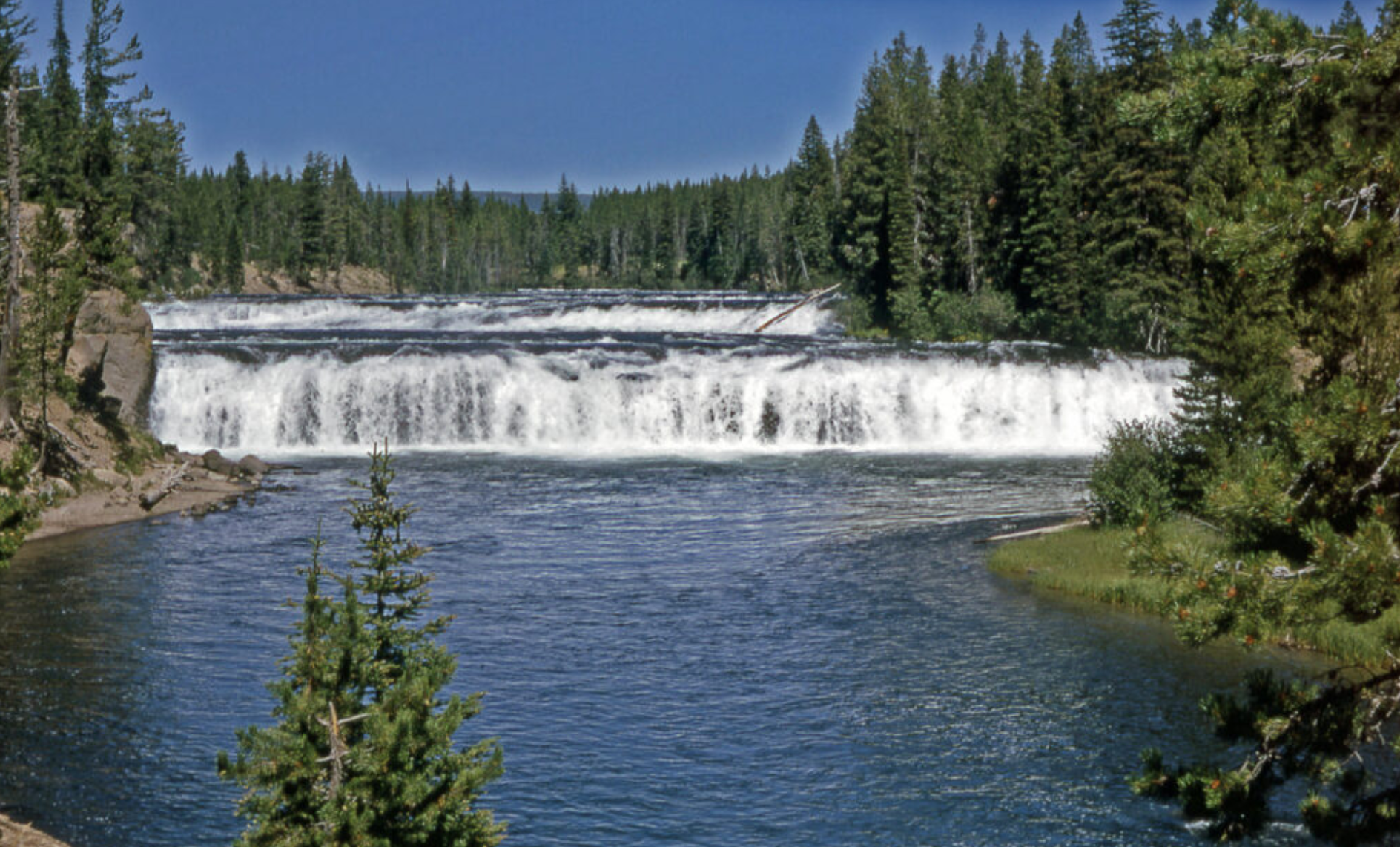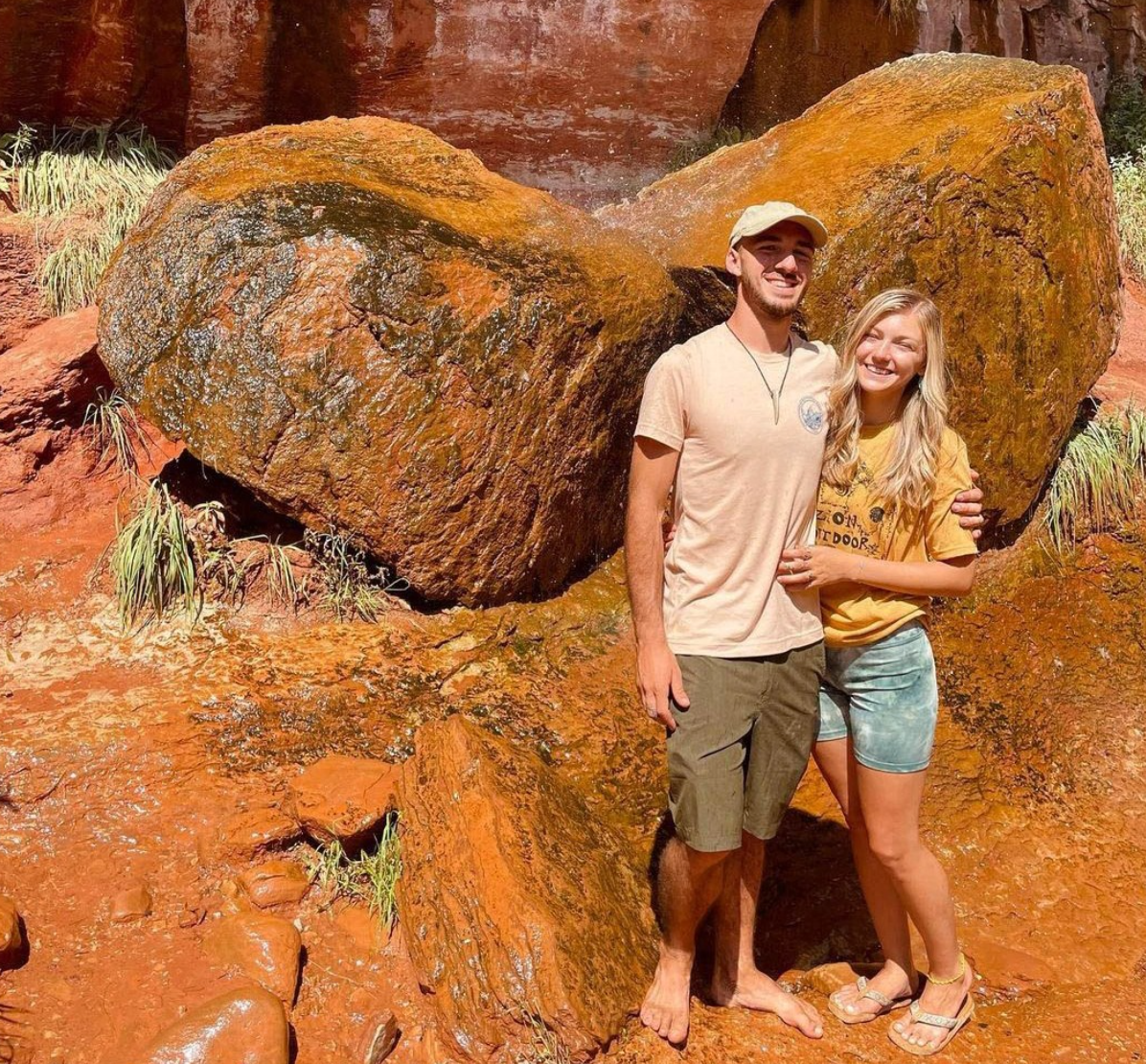Is justice coming to Yellowstone’s ‘Zone of Death’? Gabby Petito ignites call for action on lawless land
Legislators are urging Congress to fix a loophole that could make it impossible to prosecute crimes in the Idaho section of the park, Abe Asher reports

Your support helps us to tell the story
From reproductive rights to climate change to Big Tech, The Independent is on the ground when the story is developing. Whether it's investigating the financials of Elon Musk's pro-Trump PAC or producing our latest documentary, 'The A Word', which shines a light on the American women fighting for reproductive rights, we know how important it is to parse out the facts from the messaging.
At such a critical moment in US history, we need reporters on the ground. Your donation allows us to keep sending journalists to speak to both sides of the story.
The Independent is trusted by Americans across the entire political spectrum. And unlike many other quality news outlets, we choose not to lock Americans out of our reporting and analysis with paywalls. We believe quality journalism should be available to everyone, paid for by those who can afford it.
Your support makes all the difference.After decades of inaction, Idaho is pushing to address the infamous “Zone of Death” in its portion of Yellowstone National Park.
Last week, State Rep Colin Nash, a Democrat from Boise, introduced a measure asking the Congress to change the federal district court jurisdiction for the roughly 50-mile portion of the park in Idaho where presently a theory holds that people can commit crimes with impunity.
That’s right — there is a small portion of Yellowstone where legal experts believe it could be impossible to prosecute crimes.
Here’s why. Yellowstone, one of the country’s most beloved national parks, is mainly located in Wyoming, but also stretches into Montana and Idaho. It is all federal land, and all crimes in the park are prosecuted by the federal government.
Back in 2005, Michigan State University law professor Brian Kalt discovered that the entirety of the park, including the portions in Idaho and Montana, is in the jurisdiction of the District Court of Wyoming.
The Sixth Amendment to the US Constitution states that a person has a right to an impartial jury of “the State and district wherein the crime shall have been committed” — and since no one lives in the Idaho portion of Yellowstone, Mr Kalt theorised, no jury could ever be impaneled there.
That means, in theory, no one could be prosecuted for violating the law there.
In practice, Mr Kalt said, his finding has not made a world of difference. There has not been a single major crime reported in the Idaho portion of Yellowstone since he published his paper in 2005, and just one in Montana, over the illegal killing of an elk.
But recent notable disappearances near Yellowstone, including that of Gabby Petito, the young woman allegedly killed by her boyfriend Brian Laundrie near Grand Teton National Park, caught the attention of people across the world.
One of those was Mr Nash, who read Mr Kalt’s article on Yellowstone in law school.
“Every time there’s a high profile disappearance in that area — and there’s been a few in the last two years — it’s just always in the back of my mind that there’s this legal positing that would make it difficult to seat a constitutionally legitimate jury to try a person who committed a crime in the Idaho portion of Yellowstone,” Mr Nash said.
The Idaho House passed the memorial on a voice vote, and Mr Nash said that none of his colleagues, Republican or Democrat, have registered any complaint with his proposal.

“There were a couple of joking nays [during the voice vote], people who expressed interest in exploiting the loophole for themselves, but other than that, people just find it interesting to hear about,” Mr Nash said.
The memorial will be taken up by a to-be-determined Senate committee in the coming weeks and could advance to a vote of the full Senate shortly thereafter. Mr Nash said that he believes it does not require gubernatorial approval.
In addition to the recent disappearances, a range of art, including television and books, has increased the situation’s profile. Something similar to the Idaho “Zone of Death” was featured in the hit Paramount Network show Yellowstone, while a 2020 TikTok explaining the zone racked up millions of views.
“People are very interested in true crime podcasts and stuff, and so every time one of these happens, it sort of grows and grows,” Mr Kalt said. “There have also been more appearances of it in fiction.”
Mr Kalt noted that the last time there was significant movement on the issue was back in 2007 shortly after the release of the bestselling thriller Free Fire by C.J. Box, in which the protagonist investigator hunts a mass murderer in Yellowstone.
The book got the attention of the late Idaho US Senator Mike Enzi, who inquired with the US Department of Justice about potentially changing the lines. They declined to, Mr Kalt said, for “tangential, unrelated reasons.”
Now, some 15 years later, the Idaho portion of Yellowstone is in the news again.

Mr Kalt said that the prompting of a state legislature as opposed to that of a single academic could finally urge Congress to rectify this peculiarity and put the area of Yellowstone in Idaho in the jurisdiction of District Court of Idaho and the area of the park in Montana in the District Court of Montana.
A spokesperson for Idaho’s senior Republican senator Mike Crapo said that the senator has not yet taken a position on the measure in the state legislature, but will “but will monitor the issue closely” moving forward, while Sen Jim Risch’s office did not respond to a request for comment.
Mr Nash said that he has not as of yet had any contact with members of Idaho’s congressional delegation, but hopes that the joint memorial will jumpstart those conversations.
“I see no legal problems with returning this portion of Yellowstone to Idaho’s judicial district,” Mr Nash said, “so why not close this loophole so we don’t run afoul of the Constitution should a crime need to be prosecuted there?”
Mr Kalt, the original expert, said that the Idaho legislature taking up the case could be a notable step in that direction.
“It’s the most encouraging development in this story in the 17 years I’ve been working on this,” he said.


